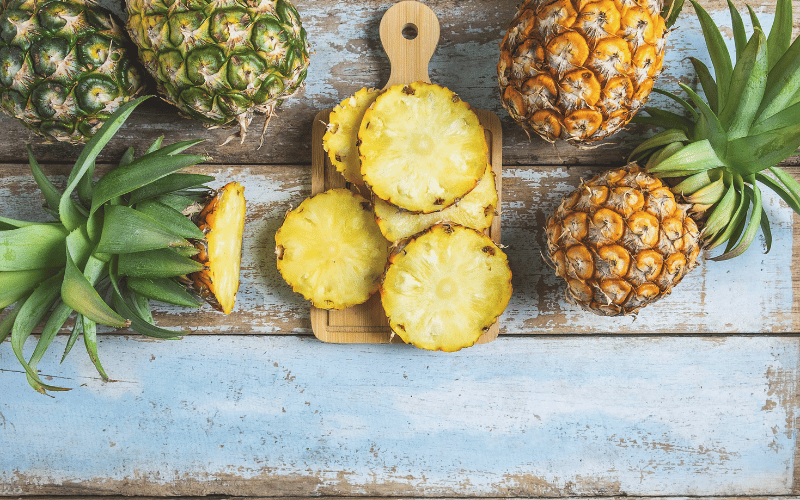10. Pineapple: A Low-Potassium Tropical Treat
Let’s head for a bit of tropical delight with pineapple, a fruit that’s not only packed with vibrant flavors but also fits seamlessly into a low-potassium diet. A cup of fresh pineapple chunks contains about 180 milligrams of potassium, allowing you to savor its sweetness without a potassium overload.
Pineapple is renowned for its juicy sweetness balanced by a tangy acidity, a combination that can elevate many dishes. Fresh pineapple can be enjoyed on its own, or tossed into a salad for a refreshing twist. It can be grilled for a smoky-sweet side dish, or used as a meat tenderizer due to its bromelain content.
Besides its versatility in the kitchen, pineapple also brings several health benefits to the table. It is rich in vitamin C, which supports immune function, and contains a good amount of manganese, a mineral important for metabolism and bone health.
Furthermore, pineapple contains bromelain, a group of digestive enzymes that help break down proteins and can aid in digestion. Some research also suggests that bromelain might have anti-inflammatory and anticancer properties, although more studies are needed to confirm these effects.
As delightful as pineapple is, remember that it’s still crucial to maintain a balanced diet. Pineapple, like any other food, should be consumed as part of a varied diet, and it’s always a good idea to consult a healthcare provider for individual dietary advice.(*)
